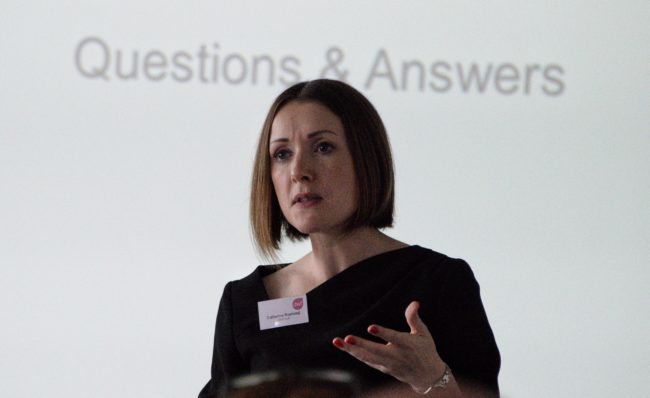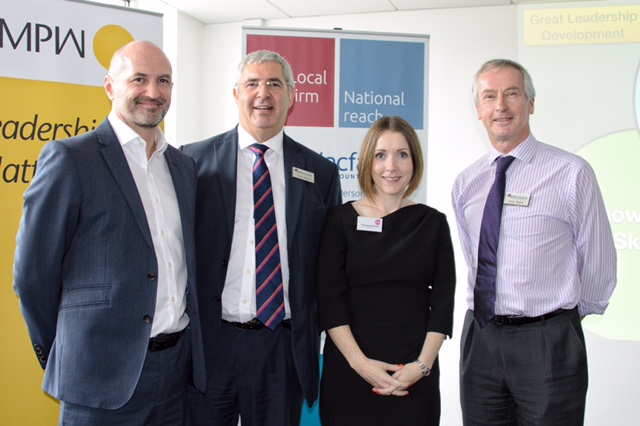Liverpool city region charities warned they face tough sanctions if they misbehave
Liverpool lawyer and charity law expert Catherine Rustomji, of law firm DWF addresses audience of charity employees and trustees at event organised by accountants BWMacfarlane. Tony McDonough reports.

Charities in the Liverpool city region have been warned they could be named and shamed by a tough new watchdog for the sector if they harass donors or misuse their personal data.
Liverpool lawyer and charity law expert Catherine Rustomji, of law firm DWF, was speaking at the Charity Autumn Update seminar organised by Liverpool accountancy firm BWMacfarlane – which itself has many clients in the charity sector.
The Fundraising Regulator was set up in February this year following a string of high-profile fundraising scandals including the harassment by fundraisers of Olive Cooke, a 92-year-old volunteer poppy seller for the Royal British Legion.
It is a self-regulatory body funded by the UK’s biggest charities and is complementary to the official regulator of charities, the Charity Commission.
Former chairman of both the BBC and ITV, Lord Grade, was given the job of establishing the body.
Tough regime
Ms Rustomji told the audience of charity employees and trustees, at the city centre event: “The regulator does set out the regime that charities are expected to comply with.
“They will also operate a fundraising preference service to enable individuals to opt out from receiving further contact from charities.
“That is something charities will need to ensure they can comply with. If someone does opt out will your charity be able to remove them from any communication or could that happen by accident?
“What we are seeing a lot of at the moment is people complaining that they have opted out and they are still receiving communications when they shouldn’t be.”
Range of sanctions
The regulator was there to offer support and advice to the charity sector on good practice, Ms Rustomji added.
But it did have a range of sanctions from the mild to the more serious that it could implement if necessary.

She explained: “Examples might be how a fundraising organisation collects or solicits property so this might include misleading or excessive requests by post, over the telephone, face-to-face, on the street or at the door.
“For charities working with third-party organisations, that will be where you need to get the message right and how it is communicated to potential donors.
“It can take remedial action where there has been a breach of the code of practice.
“Action may include recommending fundraisers undergo relevant training or signposting to online guidance to improve their approach.
“It could also seek evidence from an organisation about how it will remedy the issue or it might make it issue a public apology.
“And, it can request an organisation suspends fundraising altogether or they must submit and clear future fundraising campaigns.
“It can also report it to other regulators – for example the Charity Commission or HMRC and that could open a whole new can of worms.”
The seminar was also addressed by executive coach and leadership expert, Andy Whitehead of AMPW, and Peter Taaffe, managing partner at BWMacfarlane.

